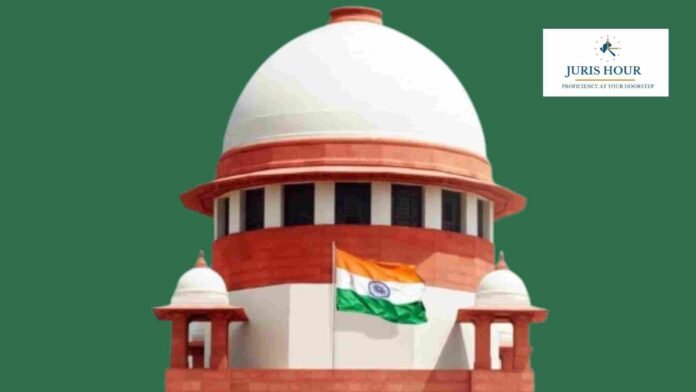The Supreme Court has once again turned its attention to the Tribunals Reforms Act, 2021, revisiting a persistent and deeply consequential debate — the balance between executive oversight and judicial independence in the functioning of India’s quasi-judicial bodies.
A Bench led by Chief Justice of India B.R. Gavai and Justice K. Vinod Chandran heard a clutch of petitions spearheaded by the Madras Bar Association, challenging several provisions of the 2021 Act as being contrary to settled constitutional principles and earlier Supreme Court precedents intended to safeguard tribunal autonomy.
At the centre of this renewed legal scrutiny lies a seemingly technical yet institutionally significant issue — the four-year tenure prescribed for tribunal members and chairpersons.
The Tenure Question: A Four-Year Term Under Fire
Senior Advocate Arvind Datar, appearing for the petitioners, described the four-year term as a direct affront to judicial precedents that have consistently emphasized longer tenures to protect institutional stability and independence.
He drew the Court’s attention to the landmark ruling in S.P. Sampath Kumar v. Union of India, where the Supreme Court had underscored the necessity of a minimum five-year tenure to ensure members can function without fear or favour. A truncated tenure, Mr. Datar argued, creates an environment of insecurity, discouraging talented professionals from accepting tribunal appointments and eroding institutional memory.
Supporting these submissions, Senior Advocate Porus Kaka, representing the Bombay Income Tax Appellate Tribunal (ITAT) Association, termed the four-year tenure “counterproductive and demoralizing.” He warned that seasoned advocates and professionals would be reluctant to leave successful private practices for such short and uncertain terms — particularly when post-retirement practice before the same tribunal is prohibited.
“Four years is short enough,” Mr. Kaka observed. “But when you combine that with a bar on post-tenure appearances, it disincentivizes capable advocates and professionals. The quality of adjudication will inevitably suffer.”
Eligibility Disparities: Unequal Standards for Advocates and CAs
Another strand of the petition challenges the eligibility criteria for appointment to the ITAT, highlighting what counsel termed as an arbitrary disparity between advocates and chartered accountants.
While advocates require a minimum of ten years of practice, the 2020–2021 Tribunal Rules mandate an unprecedented twenty-five years of experience for chartered accountants — a sharp departure from the earlier framework that maintained parity between both professions.
Counsel for the petitioners argued that this change unjustifiably diminishes the professional credibility of chartered accountants, who have historically played a critical role in tax adjudication. The differential treatment, they asserted, violates Article 14 of the Constitution by imposing unreasonable and disproportionate eligibility thresholds.
Selection Mechanism Under the Lens
The petitioners also took issue with the Search-cum-Selection Committee (SCSC) procedure introduced under the 2021 Act. As per the impugned provision, the SCSC must recommend two names for each vacancy, from which the Central Government will make the final appointment.
According to Mr. Datar, this mechanism effectively dilutes the autonomy of the selection process and expands executive discretion — allowing the government to choose a candidate based on preference rather than merit.
This, the petitioners argue, runs contrary to the principles laid down in earlier judgments such as Union of India v. Madras Bar Association (2020) and Rojer Mathew v. South Indian Bank Ltd., both of which sought to minimize executive interference in tribunal appointments and ensure parity with judicial standards.
Judicial–Executive Tensions: A Continuing Saga
This is not the first time the Madras Bar Association has taken the Union Government to court over tribunal reforms. In fact, this marks the fifth round of litigation by the association — each challenge centering on the recurring theme of executive attempts to reshape tribunal structures in ways that the judiciary perceives as compromising independence.
Over the years, the Supreme Court has struck down multiple iterations of similar provisions — in ordinances and subsequent Acts — emphasizing that tribunals cannot function as extensions of the executive branch. Their design and administration, the Court has repeatedly held, must preserve institutional integrity and judicial character, especially since many tribunals serve as substitutes for High Courts in their respective domains.
Chief Justice Gavai’s Bench had earlier directed Mr. Datar to prepare a comprehensive report on commercial tribunals, noting inconsistencies in age, tenure, and superannuation norms that were generating systemic confusion. This signals the Court’s intent to craft a coherent and standardized framework governing all tribunals.
The Government’s Position: Efficiency and Reform
The Union of India, represented by Attorney General R. Venkataramani, is expected to defend the 2021 Act on the ground of administrative efficiency and policy prerogative. The government has consistently maintained that the reforms aim to streamline the functioning of tribunals, reduce delays, and promote accountability.
However, the legal community remains wary. Critics argue that such measures, when repeatedly struck down yet reintroduced with minor modifications, represent a pattern of executive persistence that chips away at the core principles of judicial independence and separation of powers.
Read More: Expiry Of E-Way Bill Not Attributable To GST Evasion Intention: Allahabad HC

